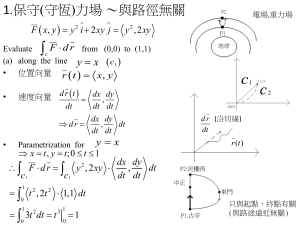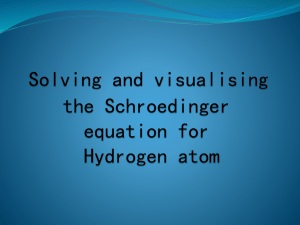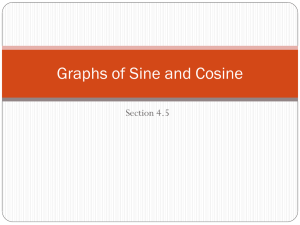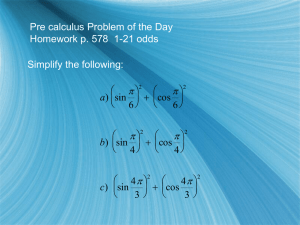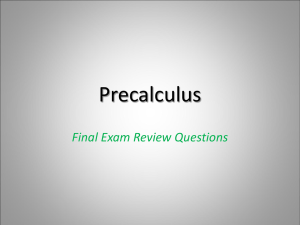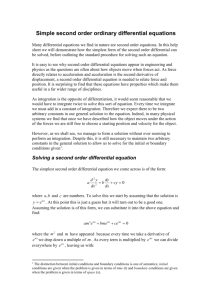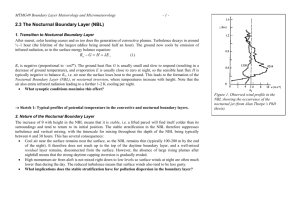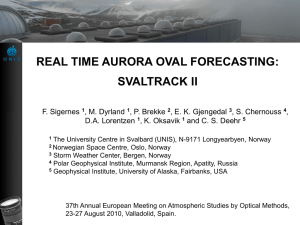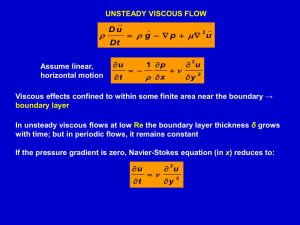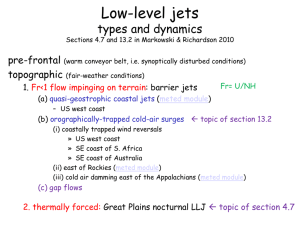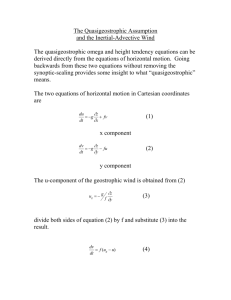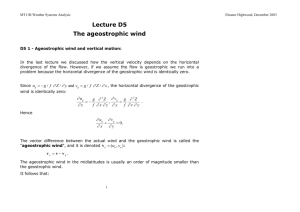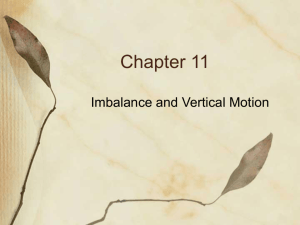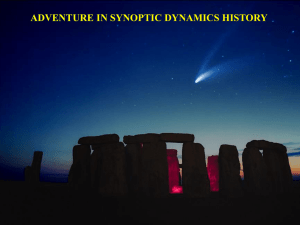Nocturnal LLJ
advertisement
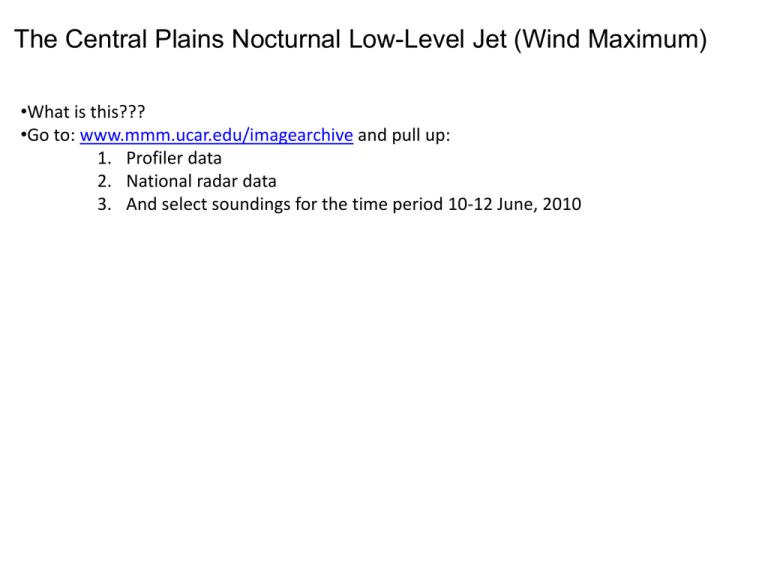
The Central Plains Nocturnal Low-Level Jet (Wind Maximum) •What is this??? •Go to: www.mmm.ucar.edu/imagearchive and pull up: 1. Profiler data 2. National radar data 3. And select soundings for the time period 10-12 June, 2010 The Central Plains Nocturnal Low-Level Jet (Wind Maximum) •Why is the nocturnal LLJ important? 1. Convective initiation often results at the intersection of the LLJ nose and a synoptic/mesoscale boundary Often leads to the formation of large MCSs – explains the nocturnal maximum of precipitation over the Plains States of the US. 2. Transports high equivalent potential temperature air northward • How does it form and why at night???? This discussion and figures follow Markowski and Richardson, 2010 Vg Wind force balance during mid afternoon •Assumes lower pressure to the west – possibly due to lee trof/thermal low as higher terrain to the west heats up during the day •Vh is the actual horizontal surface wind As cooling at the ground commences •During the evening hours, the boundary layer decouples as the surface cools •While the winds at the ground weaken significantly, within the developing inversion, this is not true in the upper parts of the nocturnal boundary layer and residual layers. •Therefore, friction is no longer important for the flow in the upper boundary layer Vh CF PGF F Vg As cooling at the ground commences •Therefore, friction is no longer important for the flow in the upper boundary layer •The flow that was in balance earlier in the day (PGF +CF+F = 0) is no longer in balance since F = 0. •Therefore, an inertial oscillation is generated to create ageostrophic flow that attempts to bring the flow back into balance. •This ageostrophic flow helps to create the LLJ. Vh CF PGF Theory Once the flow is decoupled and friction is no longer impacting the flow in the upper boundary layer, the equations of motion are: du 1 dt dv 1 dt dp fv dx dp fu dy (1) We will separate the wind velocity into it’s geostrophic and ageostrophic components: u=ug + ua v=vg + va (2) Substituting equations (2) into (1) and assuming that the geostrophic flow is constant in time (dug/dt = 0 and dvg/dt = 0) gives: dua 1 dp f vg va dt dx dva 1 dp f u g ua dt dy (3) Theory, cont We know from dynamics that: 1 dp f dy 1 dp vg f dx ug (4) Substituting (4) into (3) gives: dua fva dt dva fua dt (5) (6) By taking d(6)/dt and substituting into (5) and d(5)/dt and substituting into (6) gives (do this yourself!!!): d 2u a f 2u a 2 dt d 2 va f 2 va 2 dt (7) Theory, cont d 2u a f 2u a 2 dt (7) d 2 va 2 f va dt 2 Equation (7) is an easy to solve ordinary differential equation that has a solution: ua C1 cos( ft ) C2 sin( ft ) va C2 cos( ft ) C1 sin( ft ) (8) Where C1 and C2 are constants. They can be found by setting the following boundary conditions; at t = 0, ua = ua0 and va = va0 In doing so, one can show that C1 = ua0 and C2 = -va0. Substituting this result into (8) gives: ua t ua 0 cos( ft ) va 0 sin( ft ) va t va 0 cos( ft ) ua 0 sin( ft ) (9) Theory, cont ua t ua 0 cos( ft ) va 0 sin( ft ) va t va 0 cos( ft ) ua 0 sin( ft ) (9) Using trig rules, equation (9) can be written as: ua t Va 0 cos( 0 ft ) va t Va 0 sin( 0 ft ) (10) where: Va 0 ua20 va20 and Yo is the orientation of the ageostrophic flow at t = 0. Remember that Vh = Vg + Va In this example, the flow is sub geostrophic During late afternoon. Theory, cont As time continues, Va moves around the inertial circle. In the example below, note that Va + Vg gives a supergeostrophic flow (Vh > Vg) that is strong and southerly at 5.8 hours after the time the boundary layer first decouples. Q: The LLJ is stronger when the inertial circle is larger. What produces a larger inertial circle? Effect of sloping terrain •Over the Central Plains, the terrain slopes upward as one moves to the west. •This can help to enhance the LLJ at night by producing a low-level southerly thermal wind:

